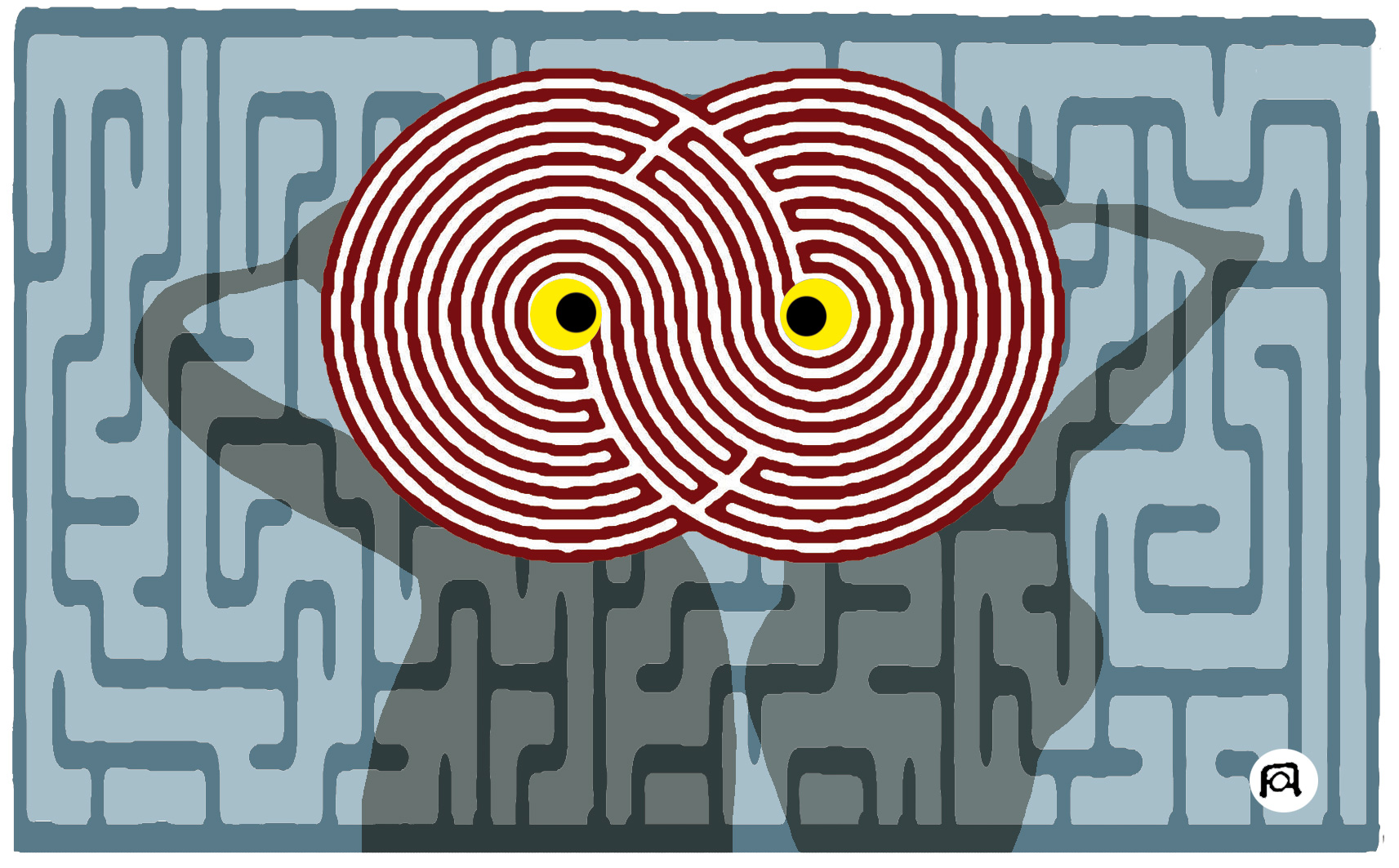We're neurotic, sorry.

Last summer I taught a course on the prevention of neurosis as part of the Hik Hasi educational meetings. Many people signed up because the title was attractive, the safest, because it implied that mental health (or lack of health) is not something random, but something that can be seen beforehand and that is precisely why we have to take care of it from the beginning.
Neurosis can be prevented. The causes of human psychological suffering are well detected and, beyond this decisive social, political and economic dimension, there is an origin that has to do with our psychological configuration, which necessarily leads us directly to question the current and here way of caring for childhood and to make profound changes.
However, this is what we call neurosis. Yes, it is a concept that we usually understand in relation to mental disorders, as it is a term used in the realm of clinical and psychological diagnosis, created to reflect and name a type of pathology. So far, all right. But what do we consider pathological, or neurotic?
We attribute the function of differentiation between disease and health to the symptomatology. Thus, if a symptom indicates that something is not well, we believe that there is a level of pathology, that is, that there are no symptoms we have to understand everything as if it were well; we identify health with the mere absence of symptoms. But are they really the same?
Normality is not synonymous with mental health or being out of insanity.
We identify mental health with behavior and life within a normality, measured in terms of a person's mere ability to adapt to society. The concept should be broader: the ability to relate satisfactorily to ourselves, to others and to the world. But mental health is true, it is an area very closely related to ideology and politics, because to decide what is treatable, they have to judge people's behaviors, necessarily making a classification between healthy and pathological.
In general, the population that works and behaves well in a society is considered normal and healthy, but normality is not synonymous with mental health or being out of insanity. The tacit consensus of normal behavior can support a society and a lifestyle unable to respond to the basic needs of the human being, and I believe that this is the case in us.
We would need to continuously review what we consider healthy and rational, normal and habitual. In fact, many pathologies can be hidden under the label of normality and consider very pathological functions, in this healthy way. Normality does not guarantee anything except the functioning and control of a specific society and lifestyle.
Our society and our way of life are so dysfunctional, far from being organized according to the needs and rhythm of human beings, that not only do we have to qualify the normal functioning of our society as neurotic, but we also have to develop a level of neurosis, to integrate ourselves into society, to accept a pathological life.
That's why we're all neurotic. Because all these characteristics of being told they are success values through education would be considered pathological in a minimally healthy society. For social (and school) success, the price of neurosis has to be paid.
Bidali zure iritzi artikuluak iritzia@argia.eus helbide elektronikora
ARGIAk ez du zertan bat etorri artikuluen edukiarekin. Idatzien gehienezko luzera 4.500 karakterekoa da (espazioak barne). Idazkera aldetik gutxieneko zuzentasun bat beharrezkoa da: batetik, ARGIAk ezin du hartu zuzenketa sakona egiteko lanik; bestetik, egitekotan edukia nahi gabe aldatzeko arriskua dago. ARGIAk azaleko zuzenketak edo moldaketak egingo dizkie artikuluei, behar izanez gero.
Nahiz eta Nazio Batuen Erakundeak (NBE) 1977an nazioarteko egun bat bezala deklaratu zuen eta haren jatorriaren hipotesi ezberdinak diren, Martxoaren 8aren iturria berez emazte langileen mugimenduari lotua da.
Aurrekoan, ustezko ezkertiar bati entzun nion esaten Euskal Herrian dagoeneko populazioaren %20 atzerritarra zela. Eta horrek euskal nortasuna, hizkuntza eta kultura arriskuan jartzen zituela. Azpimarratzen zuen migrazio masifikatua zela arazoa, masifikazioak zailtzen baitu... [+]
Ez dut beti ulertzen nola aritzen ahal diren lur planeta honetako zati okitu, zuri, gizakoi eta kapitalistako aho zabal mediatikoak, beraiena, hots, gurea, zibilizazioa dela espantuka. Berriak irakurtzen baldin baditugu, alta, aise ohartuko gara, jendetasuna baino, barbaria dela... [+]
Administrazioko hainbat gai, LGTBI+ kolektiboko kideen beharrizanak, segurtasun subjektiboa, klima aldaketa, gentrifikazioa, ikus-entzunezkoak erabiltzeko modu berriak, audientzia-datuak jasotzeko moduak, dislexia, ikuspegi pedagogiko aktibo eta irisgarriak, literatur... [+]
Auzitan jar ez daitekeen baieztapen orokor eta eztabaidaezinaren gisan saldu digute hizkuntzak jakitea printzipioz ona dela, baina baditu bere "ñabardurak", edo esanahi ezkutuagokoak. Hemengo ustezko elebitasun kontzeptuaren azpian dagoen baina kamuflatzen den... [+]
Otzandu egin gara, katalanak eta euskaldunok, ekaitzaren ondoren. Saiatu ginen, bai; sendo ekin genion, eta gogor kolpatu gaituzte; ezin izan genien gure helburu zuzen, ezinbesteko, sakratuei eutsi. Eta porrotaren mingostasuna dastatu dugu, eta bigundu egin gara irabazleen... [+]
Desgaitasun fisikoa duen arkitekto baten alabaren etxea bisitatu ondoren idazten dut honako hau.
Desgaitasun fisikoa duten pertsonen taldeek ez dute arkitektoa maite, beraien bizitza zailtzen duen gaizkile bat kontsideratzen baitute. Gorrotoa ulerkorra da: arkitektoaren lanak... [+]
Iragana ulertzen saiatzen eta etorkizuna bideratzen, oraina joaten zaigu zenbaiti. Nire proiektuetako bat (hasi baina landu ez dudana oraindik) dudan zuhaitz genealogikoa egitea da. Horretan lagunduko didan liburutxo bat ere erosi nuen. Baina, hain da handia lana, liburutxoa... [+]
Ortutik itzuli berritan erabaki nuen Twitterretik alde egitea, oraindik Twitter zenean. Auzolan batera joan nintzen, brokoliak eta azaloreak landatzera, eta mindfulness efektua zapuztu zidan algoritmoak, idazle feminista transgorrotatzaile baten txioak jaurtitzearekin... [+]
Martxoaren 8a hurbiltzen ari zaigu, eta urtero bezala, instituzioek haien diskurtsoak berdintasun politika eta feminismoz josten dituzte, eta enpresek borroka egun hau “emazteen egunera” murrizten dute, emakumeei bideratutako merkatu estereotipatu oso bati bidea... [+]
Batzuendako, dirutza izatea ez da nahikoa, eta euren ego hauskorrek diruaren txintxina ez ezik, protagonismoa ere eskatzen dute. Aberats okituak izatea nahikoa izango ez balitz bezala. Beti gehiago behar dute, anbizioa deritzote antsia horri, baina botere gosea eta nabarmendu... [+]
Bi neska komisarian, urduri, hiru urtetik gora luzatu den jazarpen egoera salatzen. Izendatzen. Tipo berbera agertzen zaielako nonahi. Presentzia arraro berbera neskek parte hartzen duten ekitaldi kulturaletako atarietan, bietako baten amaren etxepean, bestea korrika egitera... [+]
Iragan urtarrilaren hondarrean, Bretainiako lurraldeko bi hizkuntza gutxituei buruzko azken inkesta soziolinguistikoaren emaitzak publiko egin zituzten bertako arduradunek. Haiek berek aitortu zuten harriturik gertatu zirela emaitzak ikustean. Hain zuzen ere, egoerak eta... [+]
Silicon Valley-ko oligarkia AEBetako gobernura iritsi berritan lehertu da adimen artifizialaren (AA) burbuila. Txip aurreratuen erraldoia den Nvidia-k urtarrilaren amaieran izandako %16,8ko balio galera, egun bakar batean inoiz izan den burtsa balio galerarik handiena da... [+]
























